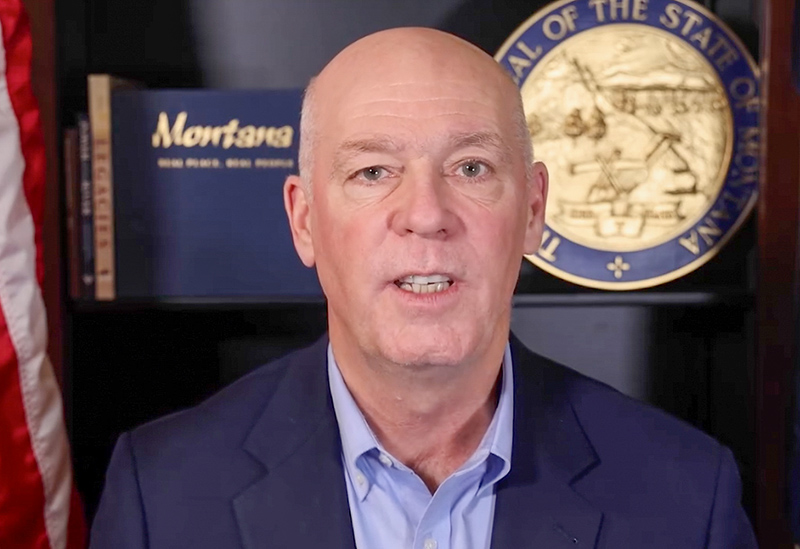NCAA will allow individual sports to determine whether trans athletes can compete
Going forward, transgender athletes will have to submit proof of their hormone levels in advance of major championships.

The National Collegiate Athletic Association has approved new rules affecting the eligibility of transgender athletes to compete on sports teams matching their gender identity.
Last week, the NCAA Board of Governors approved new guidelines, effective immediately, in an attempt to align the governing collegiate sports body’s policy with that of the U.S. and International Olympic Committees. Under those guidelines, the national governing body of each sport will determine its own criteria for eligibility, rather than a one-size-fits-all solution.
If a sport does not have a national governing body, or the body does not have a written policy on transgender athletes, the sport’s international federation policy will determine eligibility. If there is no international federation policy, previously established IOC policy criteria would be followed, reports The Associated Press.
The Board of Governors hailed the sport-by-sport approach as a solution that “preserves opportunity for transgender student-athletes while balancing fairness, inclusion and safety for all who compete.”
By shifting to allowing the national governing bodies for each sport to set their own eligibility criteria, the NCAA is hoping to sidestep — at least somewhat — some of the responsibility and avoid some of the backlash it has received for previously allowing trans female athletes to compete after finishing a year of hormone therapy.
The policy is effective starting with the 2022 winter season championships. Going forward, transgender student-athletes will need to document sport-specific testosterone levels beginning four weeks before their sport’s championship selections. For the 2022-2023 academic year, trans athletes will need documented levels at the beginning of their season, and subsequent documentation six months afterward. The policy will be fully in effect by the start of the 2023-2024 academic year.
“We are steadfast in our support of transgender student-athletes and the fostering of fairness across college sports,” John DeGioia, the chair of the board of governors and president of Georgetown University, said in a statement. “It is important that NCAA member schools, conferences and college athletes compete in an inclusive, fair, safe and respectful environment and can move forward with a clear understanding of the new policy.”
“Approximately 80% of U.S. Olympians are either current or former college athletes,” NCAA President Mark Emmert added. “This policy alignment provides consistency and further strengthens the relationship between college sports and the U.S. Olympics.”
The change to the NCAA’s policy comes amid controversy over the participation of Lia Thomas, a transgender female athlete who competed for the University of Pennsylvania’s men’s swimming team for three years prior to meeting eligibility criteria, including a full year of hormone therapy, to compete on the women’s team.

Thomas has begun smashing Ivy League records this year, especially in long-distance swimming events, where she often finishes significantly ahead of her fellow competitors. As a result, many of her competitors, and reportedly, some of her own teammates, as well as women’s sports advocates, have decried her participation as unfair and urged the NCAA to change its rules to require athletes to compete based on their assigned sex at birth.
By making the change effective immediately, the NCAA gives Thomas notice, well in advance of the collegiate women’s swimming championships, that she will have to submit proof that she meets USA Swimming-specific testosterone levels four weeks before those championships. Given that the NCAA women’s championships are being held from March 16-19 at Georgia Tech in Atlanta, Georgia, she will have to provide that personal medical information to NCAA officials around mid-February. Thomas has already met the time criteria and cutoffs for the 200-yard, 500-yard, and 1,650-yard freestyle events at the national championships.
Last Thursday, USA Swimming released a statement on its transgender participation policy, saying it “firmly believes in inclusivity” while also supporting “competitive equity,” adding that “like many, [we] are doing our best to learn and educate ourselves on the appropriate balance in this space.”
USA Swimming’s current policy, adopted in 2018, utilizes a review panel to make individual determinations on eligibility, according to Fox News. Under that policy, elite athletes are subject to FINA [the international swimming federation] and IOC regulations, although the latter are currently in flux following a November update to the IOC’s policy, which defers to individual sporting bodies to develop their own criteria.
The organization added in its statement that it has already implemented inclusion procedures that allow “non-elite” athletes to compete in a category consistent with their gender identity. But it still remains unclear whether collegiate athletes qualify as “elite” or “non-elite” under the current policy. That is expected to be resolved in the coming months when FINA releases its own eligibility criteria, including information on specific hormone levels that athletes must meet in order to compete in women’s swimming events.
USA Swimming said it has been “proactively working with FINA for several months to help shape and support their policy development efforts,” and is expected to adopt FINA’s eligibility standards wholesale once those are made public.
Support Metro Weekly’s Journalism
These are challenging times for news organizations. And yet it’s crucial we stay active and provide vital resources and information to both our local readers and the world. So won’t you please take a moment and consider supporting Metro Weekly with a membership? For as little as $5 a month, you can help ensure Metro Weekly magazine and MetroWeekly.com remain free, viable resources as we provide the best, most diverse, culturally-resonant LGBTQ coverage in both the D.C. region and around the world. Memberships come with exclusive perks and discounts, your own personal digital delivery of each week’s magazine (and an archive), access to our Member's Lounge when it launches this fall, and exclusive members-only items like Metro Weekly Membership Mugs and Tote Bags! Check out all our membership levels here and please join us today!


























You must be logged in to post a comment.